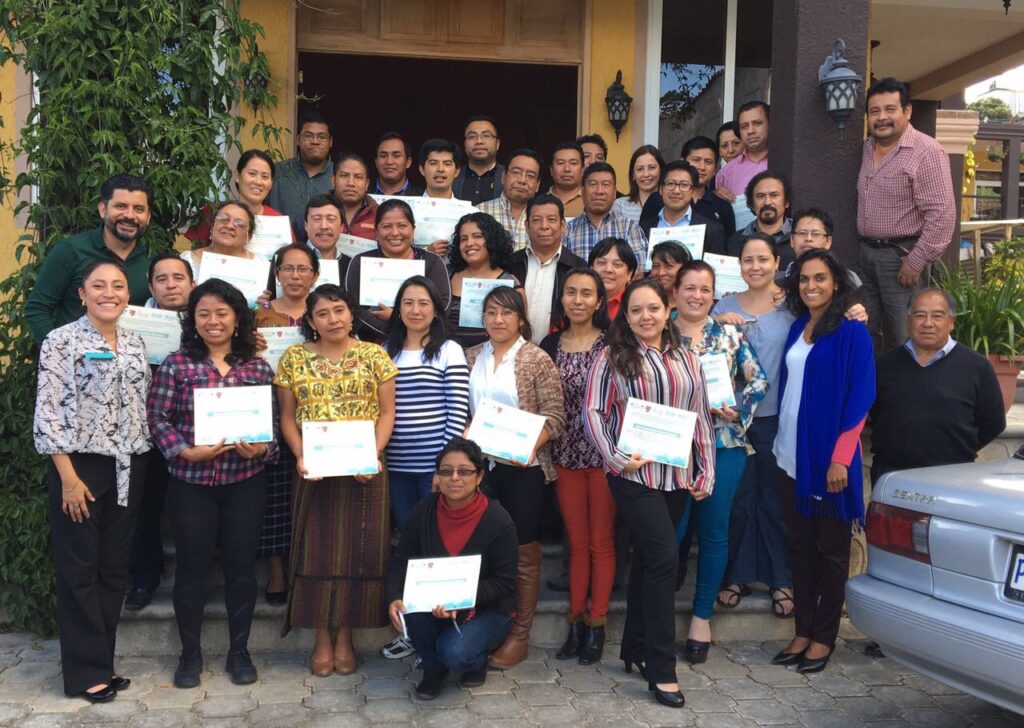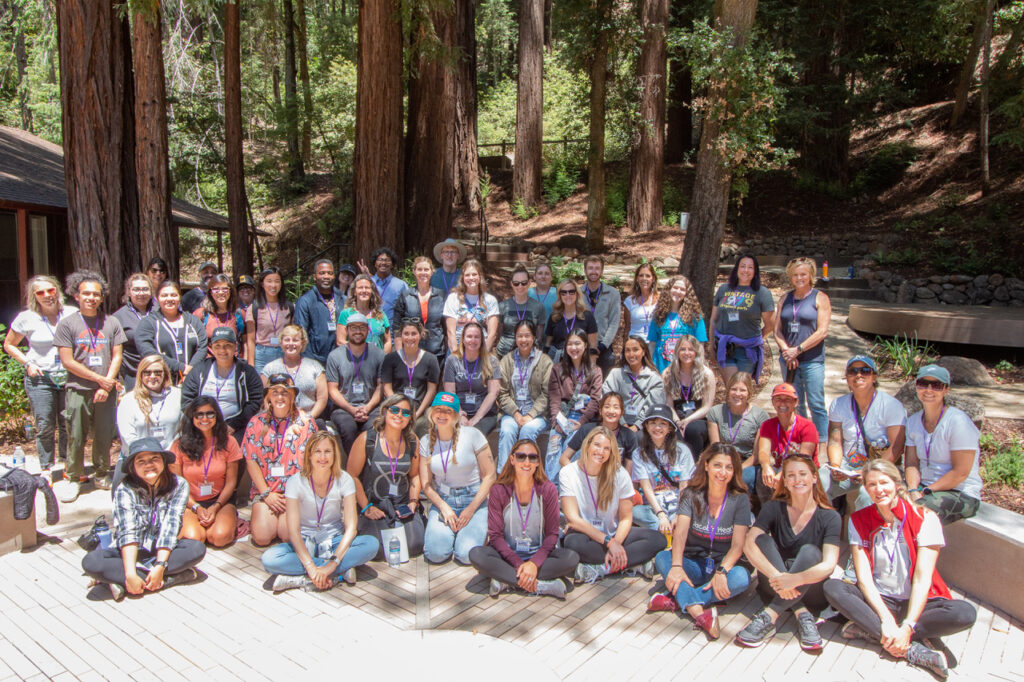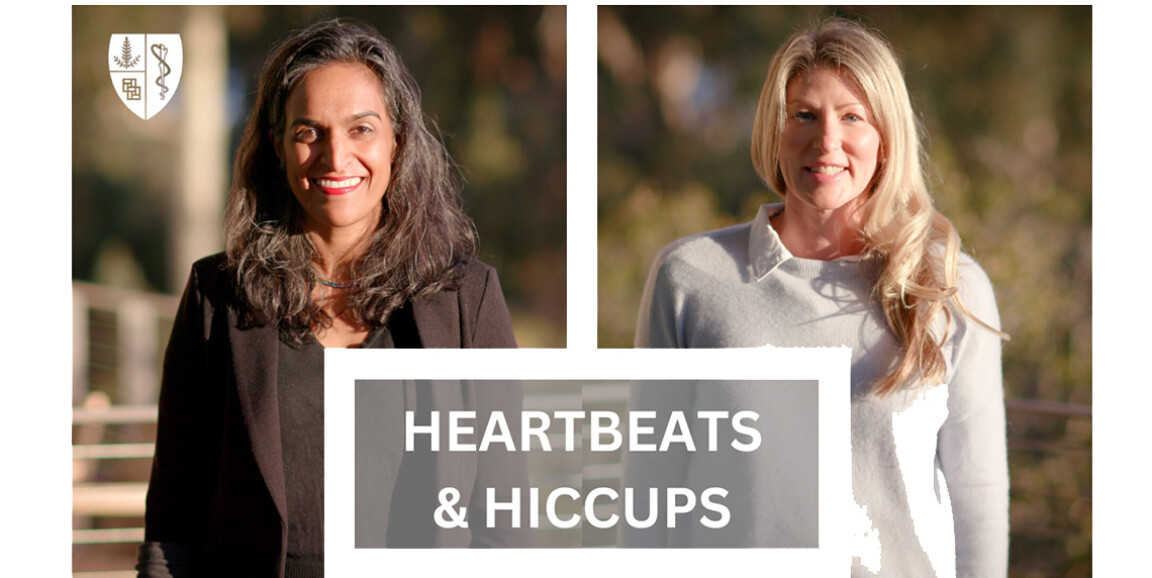Heartbeats and Hiccups: From passions to pivots, a conversation about the defining moments that shape our careers
It feels good to do good things. Christina Khan, MD, PhD, clinical professor of psychiatry and behavioral sciences at the Stanford School of Medicine, and Darcy Swisher, RN, pediatric intensive care unit nurse at Stanford Medicine Children's Health, know this firsthand. Khan and Swisher, make time in their off hours to lead advocacy work of their own, something they've both done for years.
In a recent conversation, the two discussed how their passion to help patients fuels them to go above and beyond their medical responsibilities. Interwoven into their work is a common theme: supporting mental health.
Swisher, who leads a camp for children who have had or are undergoing cancer treatments (and their family members), said the camp is an emotional reprieve -- not just for the patients but also for the nurses and health care providers who volunteer to put the camp on.
Khan's advocacy work expands to a global audience. Since 2014, she's partnered with a nonprofit group to teach health care providers in developing countries how to identify and treat mental health conditions -- a facet of medicine that's sometimes overlooked in regions with few resources.
Swisher and Khan discussed how their efforts aim to improve mental health -- of both patient and provider -- globally and locally, and why they think it's such an important aspect of advocacy work.
How do you prioritize mental health in the advocacy work you do?
Khan: I've been interested in global health since I was in medical school -- particularly in building capacity to support mental health care in places where there aren't a lot of resources. In Guatemala, medical training did not include a curriculum for mental health until recently. So for several years, I and others at Stanford Medicine partnered with local organizations in Guatemala to help support mental health care trainings in rural, primarily indigenous communities; and helped establish a resident rotation there to support those services in the western highlands of the country.

We used a curriculum created by the World Health Organization, offering courses for primary care doctors, community health workers, teachers and other health care providers so they can better diagnose and treat mental health conditions.
It was an amazing opportunity to bring a new type of care to settings in which patients are already seen or where people naturally gather -- whether it's a doctor's office, school or a community health center -- and train the professionals there to spot and address concerns.
Swisher: I know from personal experience that the camp had this wonderful impact on my mentality -- it helped sustain me throughout the year. And as more and more people volunteered, it became clear that it wasn't just the patients who benefited mentally and emotionally from the camp -- the volunteers felt it, too.
We set out to explore that formally, conducting a study about the experience of the pediatrics ICU nurses who volunteered at camp. We interviewed them, they filled out questionnaires and we held focus groups to discuss their experiences at camp.
We found that nurses who participated in the camp had reduced burnout six months after the camp and they reported that the experience supported their well-being.
What's the most rewarding part of your work?
Khan: There is no health without mental health. The WHO training incorporates an algorithm that any layperson can learn and use to deliver interventions. That's why we expanded these trainings beyond the clinic to schools and community health centers. Part of the training is to learn when to refer a patient to a mental health professional, including, for example, if the case is severe and requires a specialist, or if a prescription is needed. But helping someone make behavioral changes -- including tapping into social support networks, reintegrating into community, engaging in more physical activity, paying attention to nutrition and sleep -- can be accomplished by any health provider or trained worker, and that's hugely impactful. It is truly an honor to be able to help facilitate solutions that target health behaviors.
After seeing the impact of this training, the minister of health for the state hired a psychologist for each public health center in the region, which was totally unheard of. It was a really cool outcome of the effort.

Swisher: Whenyou work as a pediatric ICU nurse, you're seeing a child and family who are going through a crisis -- these might be some of their worst hours. That's what makes it so great to see the family and the child outside of the hospital, outside the crisis moment, thriving in a setting that's fun and relaxing.
In ICU nursing, I feel like we sometimes struggle with some of the things we have to do to care for these kids. We're always working to help them get better and heal, but cancer treatments, shots, and needles can be painful or uncomfortable. And that can be hard on you mentally. So to see that your efforts are worthwhile, and to bring joy to patients and their families, that's really worth it.
One of the founders of the camp once told me, "This weekend will be something they remember for the rest of their lives." I couldn't agree more --- and it's been life-changing for me.
For more Heartbeats and Hiccups coverage, visit related Scope stories or our video playlist.
Photo by Todd Holland






